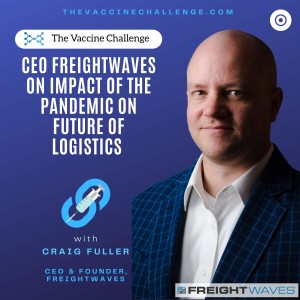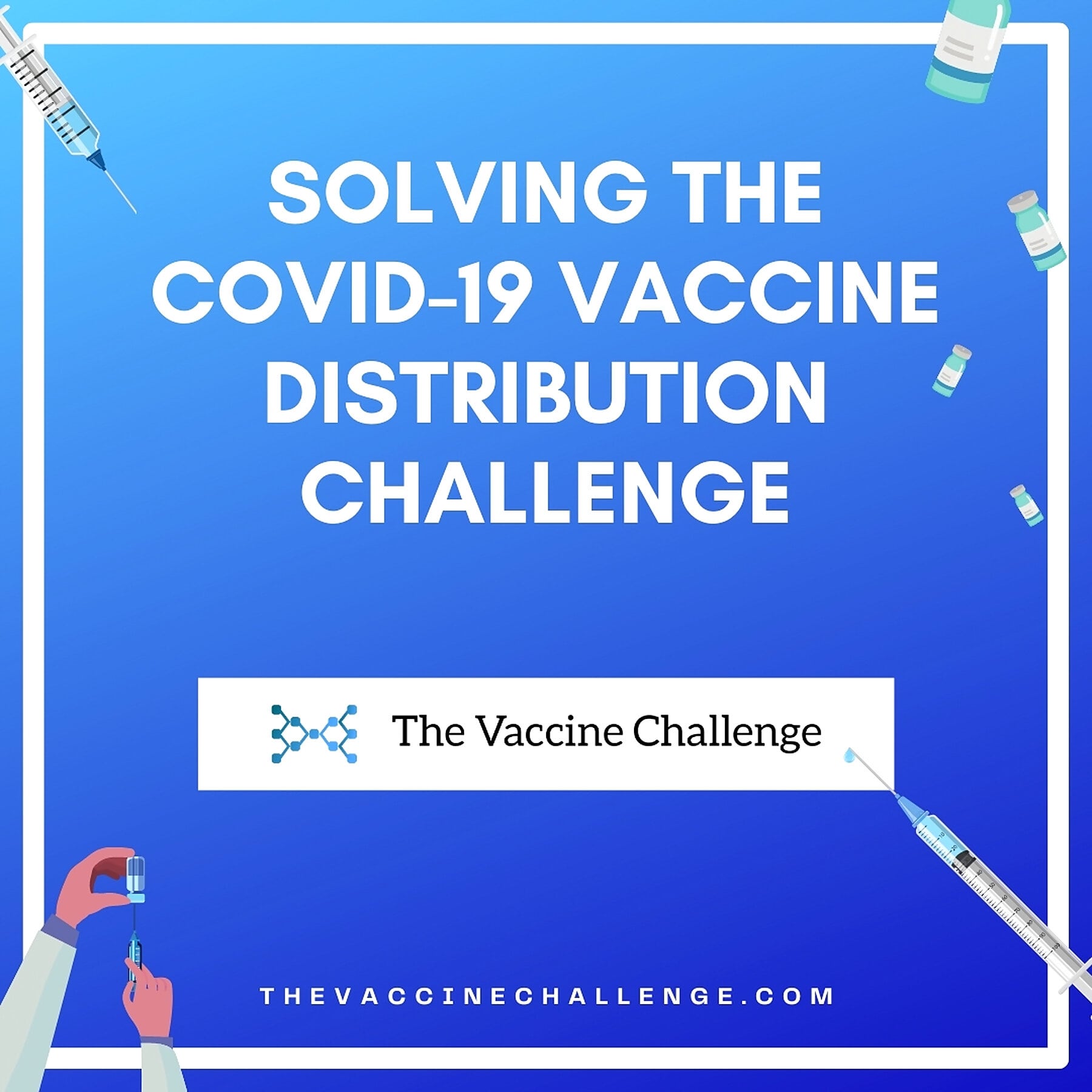Episodes

Thursday May 06, 2021
Thursday May 06, 2021
This episode of The Vaccine Challenge is hosted by Priyanka Asera and features Craig Fuller, Founder & CEO, FreightWaves.
FreightWaves is the leading publication in freight and brings data and analytics to the global $9.6tn industry. Where there was so much speculation about how difficult the logistics was going to be for vaccine distribution, we asked Craig to validate if that was true and what are the actual bottlenecks in distribution from his perspective.
We also asked Craig to give us a lowdown of how things played out in the freight market when lockdowns first started happening in March 2020 and what is set to change permanently in the world of freight and logistics as a result of the pandemic.
Summary of the podcast interview:
Can you define what comprises of the cold chain and was there a lack of supply chain capacity to move the vaccines like a lot of media speculated in the early days?
- Cold chain – in trucking it’s reefers, in sea shipping it’s refrigerated containers, in warehousing it’s freezing units. It’s just the need to maintain integrity of temperature range
- A lot of mainstream media talked about lack of supply chain capacity to move vaccines. That was actually never an issue. The actual issue was actually just at the final inch – like how the states were distributing the vaccines to the health professionals. The cold chain had plenty of capacity and could easily flex up with the use of dry ice
- At peak capacity, it was only 30 reefers a day moving out of vaccine manufacturers that was required. The vaccines just don’t take up that much space. This is less than 0.1% of all reefers in the US market
- Media blew it way out of proportion. For context – Walmart will see way more traffic in 1 facility in a day than was required for the vaccines
What have been the actual challenges and bottlenecks in vaccine distribution been?
- Bottleneck in vaccine distribution was how poorly the coordination was done between the states. They just followed the emergency response model where federal government acts as an insurance provider, and then leaves it to states to manage the execution
- No problem getting vaccines to rural America either. Problem is people there don’t want the vaccine. In the cities, it was difficult to get appointments initially because there wasn’t enough supply but if you drove 20 mins out to the rural communities, it was immediately available
- Failure on part of federal and state government planning because they distributed the vaccine based on population distribution not taking into account the demand patterns of the demographics
What was the implication on supply chain and logistics as a result of the pandemic? Which companies emerged stronger as a result?
- Pandemic – huge tailwind for the industry. Throws a light on need for sophisticated supply chains. Shows stark difference between high volume, efficient, data-centric supply chains –found in retail and CPG that move massive numbers of SKUs. And then you see less robust/less sophisticated SCs in other industries
- Panera Bread and Chipotle did a great job pivoting and upgrading their SCs. Earlier handled a relatively small business on-demand but have migrated to mostly all on-demand
- Target had a couple of substantial quarters because they were ready for curb-side pick-up and deliveries well before the pandemic
- Food delivery has forever changed. Packaging has changed forever – restaurants are making sure their packages are more robust
- Visibility, track & trace, and having chain of custody information is going to be table stakes for companies going forward
What data surprised you in the last year as the pandemic was playing out?
- In late Feb, we realized US was going to be impacted by COVID because of shut down of China and what that would mean for domestic transportation flows
- Early March to March 22-23 there was massive demands for products
- In April we made a controversial call and predicted that the freight market was going to have an aggressive V shaped recovery. Even internally, there was a big disagreement. But that’s what the data suggested. We were right, the markets bounced back so strong because they were as low as they would be at that point
About Craig
Craig Fuller is the CEO and founder of FreightWaves, the leading provider of data and analytics for the global logistics industry. FreightWaves provides the fastest view of transportation and logistics market activity, across all modes. The company is also the No.1 source for media and market analytics in the global freight industry.
Prior to founding FreightWaves, he was the founder and CEO of TransCard, a fleet payment processor that was sold to US Bank. He also has been deep in the freight industry, having founded and managed the largest provider of on-demand trucking services in North America, the Xpress Direct division of US Xpress Enterprises.


No comments yet. Be the first to say something!